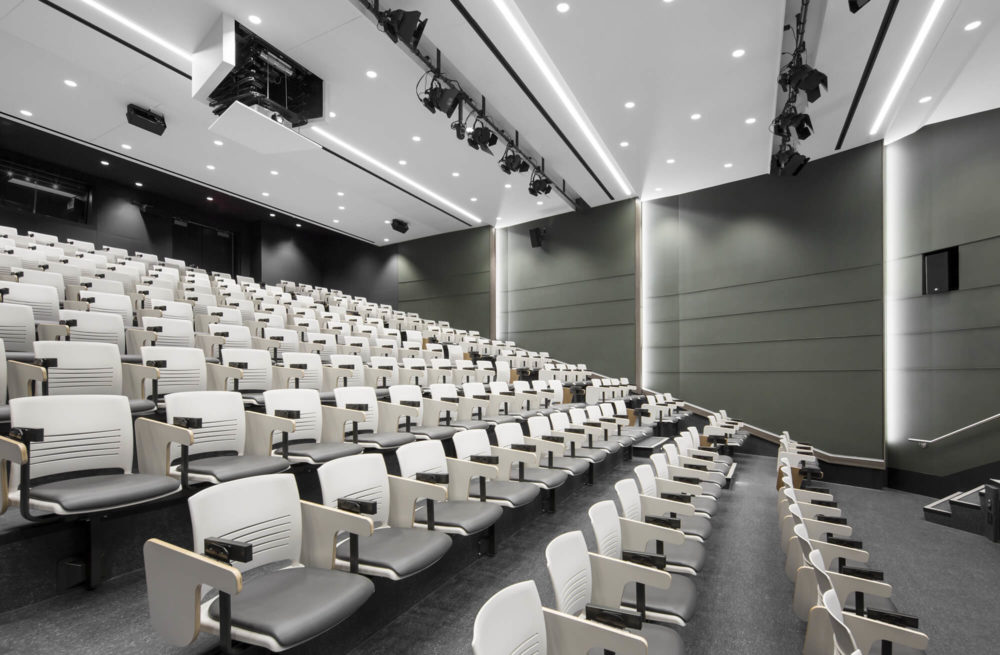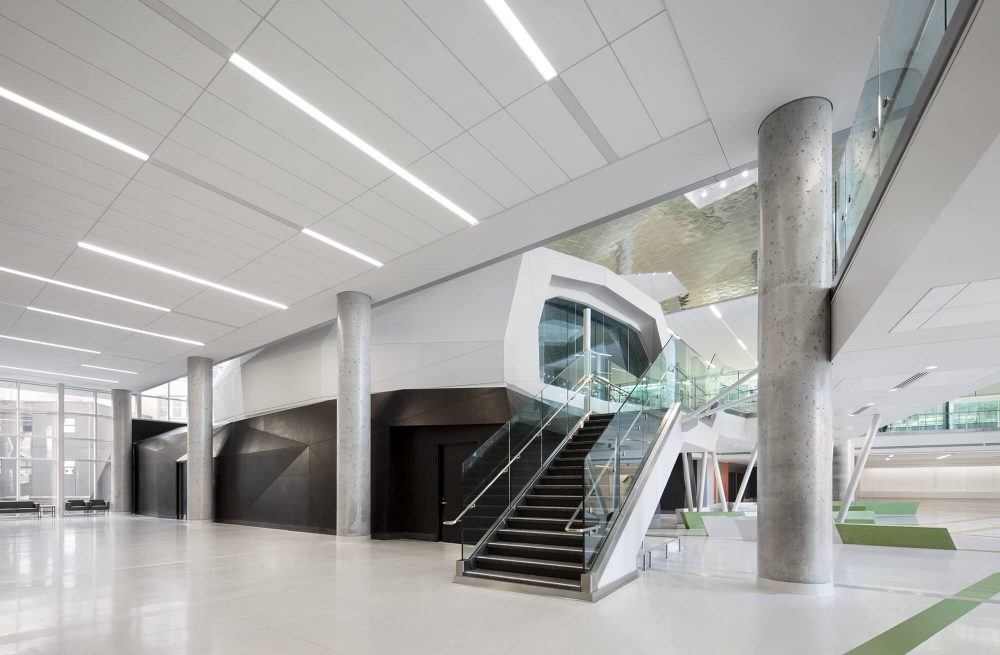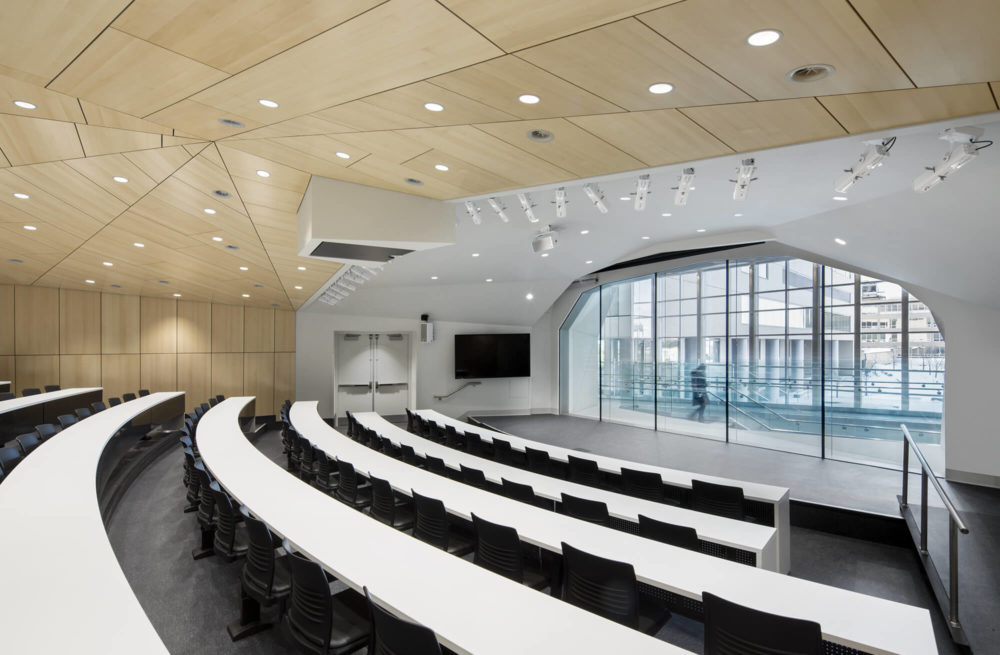Centre hospitalier universitaire Sainte-Justine
MOTHER AND CHILD UNIVERSITY HOSPITAL CENTRE
The “Growing Up Healthy” expansion and modernization project enables the hospital to more adequately meet the needs of mothers and children with respect to specialized care and services, while supporting research, education, technological advancement and health promotion.
The new, roughly 130,000-square-metre construction increases the institution’s total surface area by 65% and houses the Special Care Unit, the Research Centre, a new thermal power station, and a four-level underground parking facility.
The seven-storey building is located to the west of the existing hospital and is connected to it via footbridges and underground passages. It is comprised of specialized pediatric and surgery wards, a 14-room surgical unit, a unit for high-risk pregnancies, a labour ward, a pediatric and neonatal intensive care unit, and medical imaging facilities. In terms of research facilities, there are laboratories, units for basic research, classrooms, evaluation-based teaching rooms, lecture halls and two auditoriums (125 and 250 seats, respectively).
Photography
Stéphane Brügger, Stéphane Groleau
Structure
SNC-Lavalin
Landscape
NIP Paysage
Partners
Menkès Shooner Dagenais LeTourneux Architectes
Certification
Gold LEED NC
Country
Canada
City
Montréal
Client
Centre Hospitalier Universitaire Sainte-Justine
Surface Area
130,000 m2
Year
2017
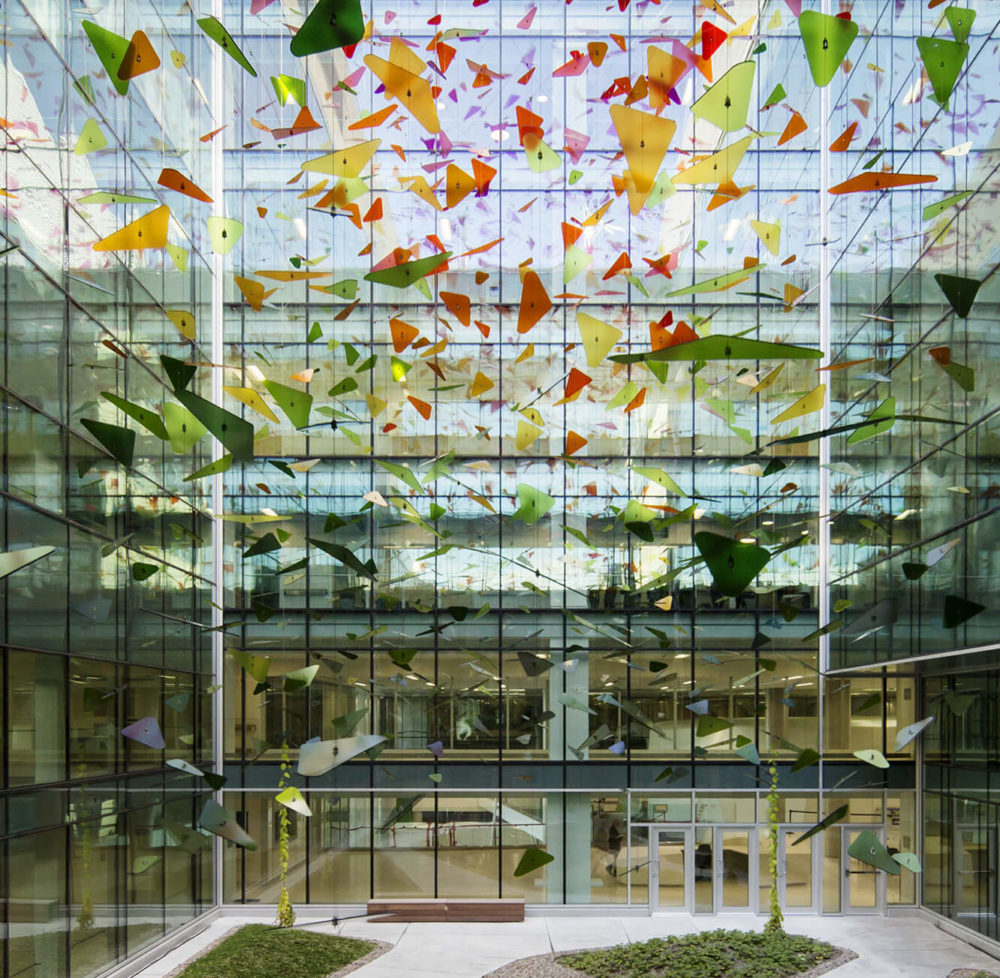
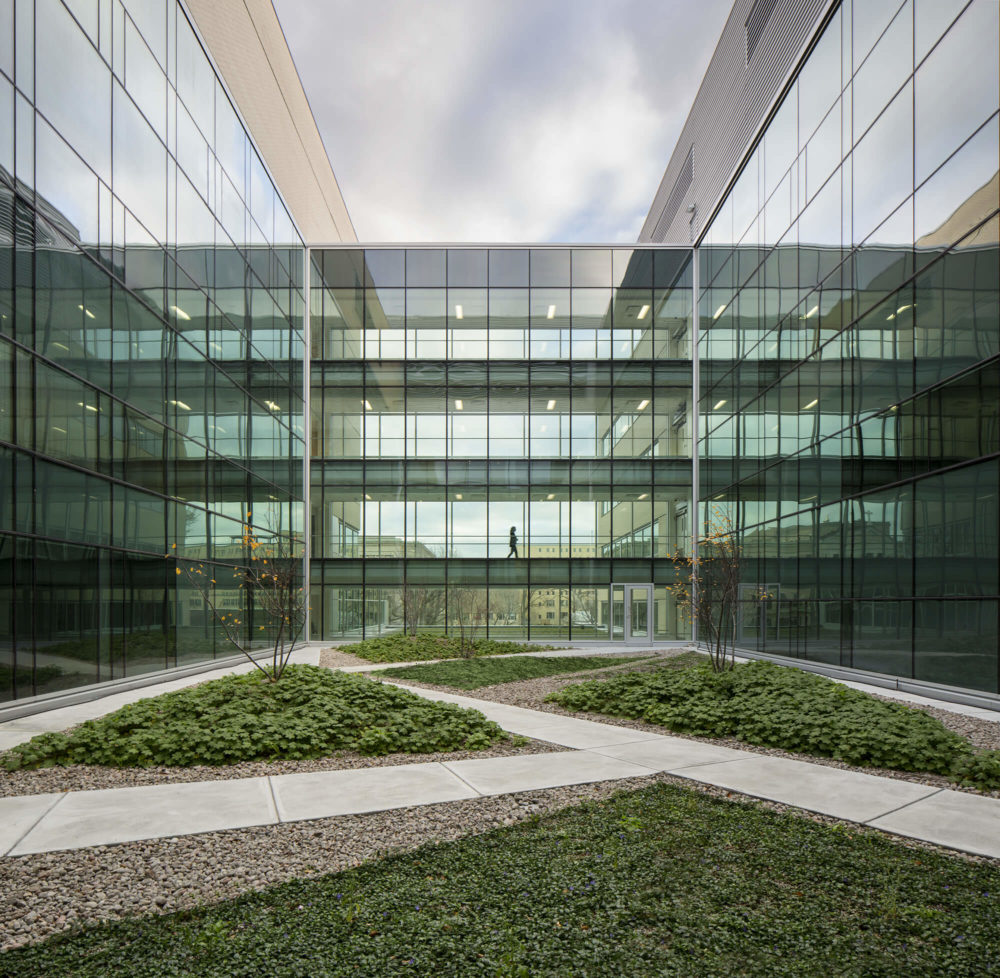
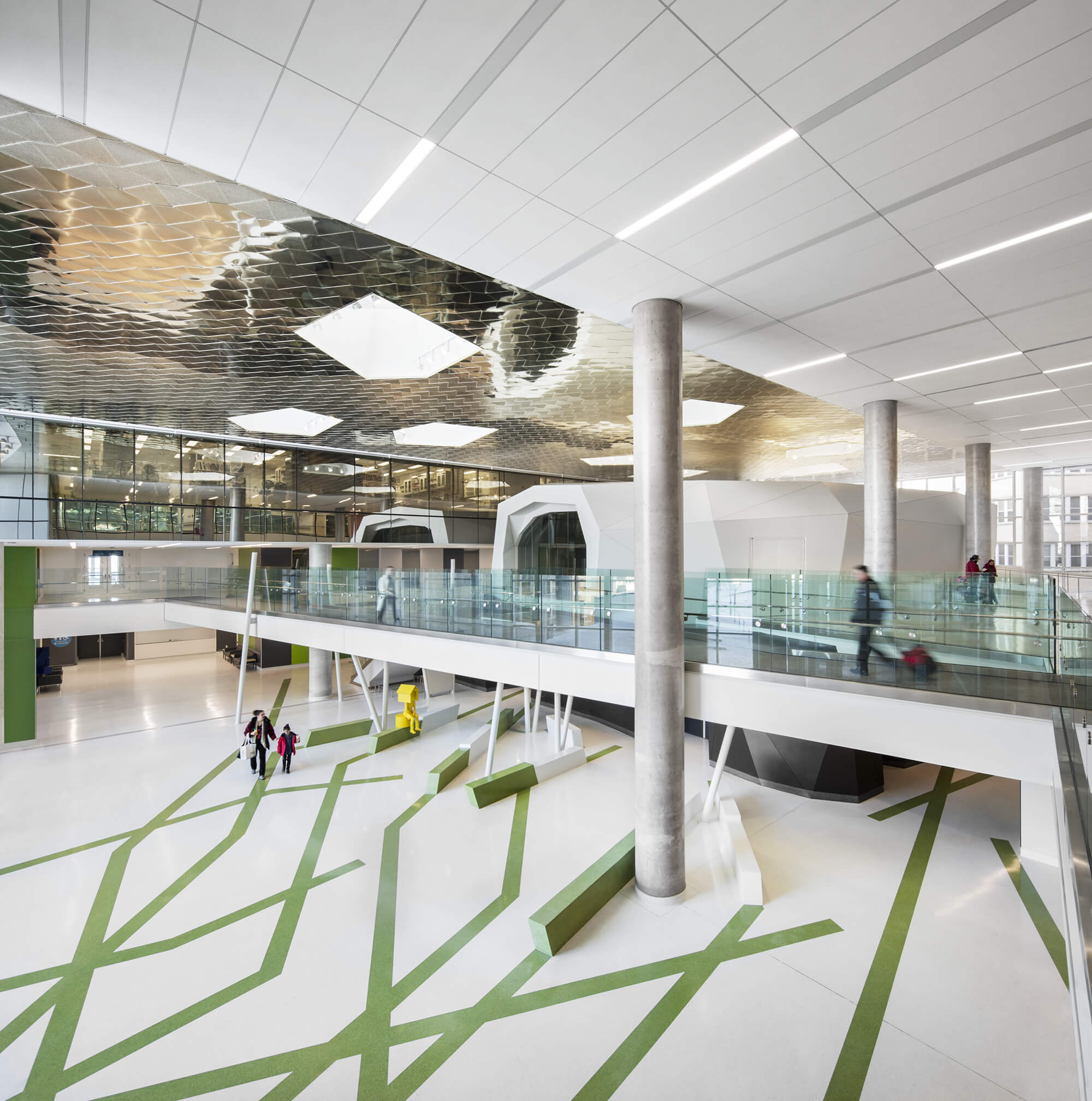
The site’s close proximity to the protected area of Mount Royal informed the architects’ approach to creating a healthy environment. Based on the concept of “hypernature,” the project makes emphatic use of colours and elements inspired by animals and plants of the boreal forest, with spaces that allow natural light to penetrate and common areas for strolling as well as green paths linking the existing building to the new one.
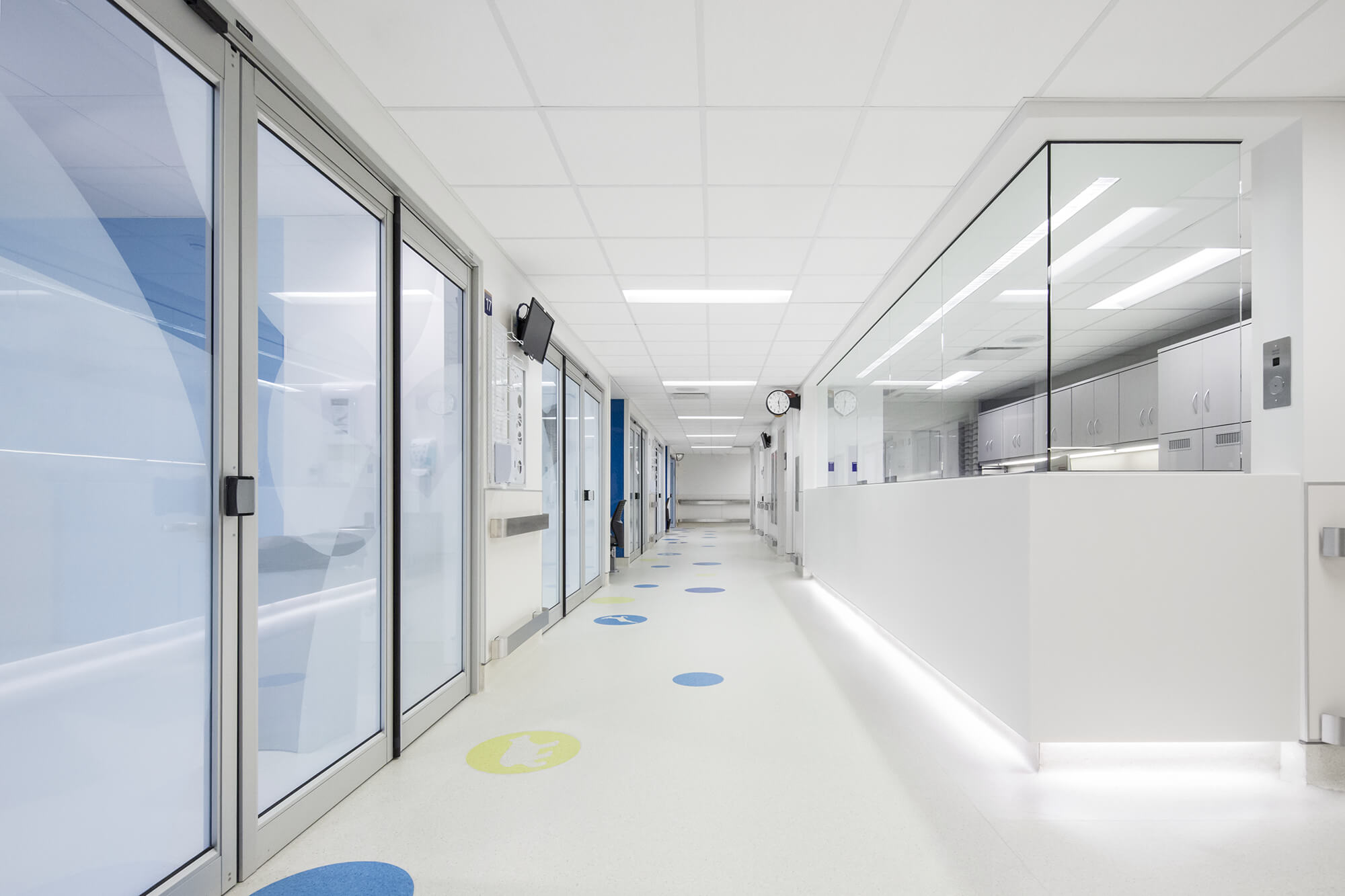
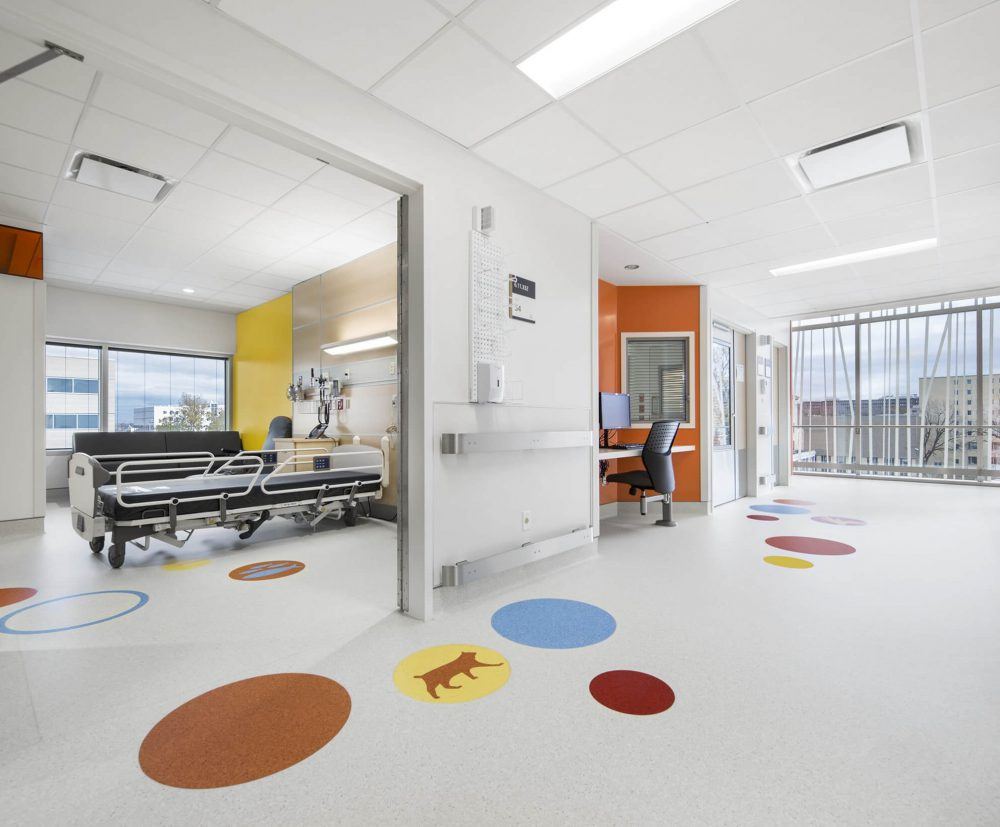
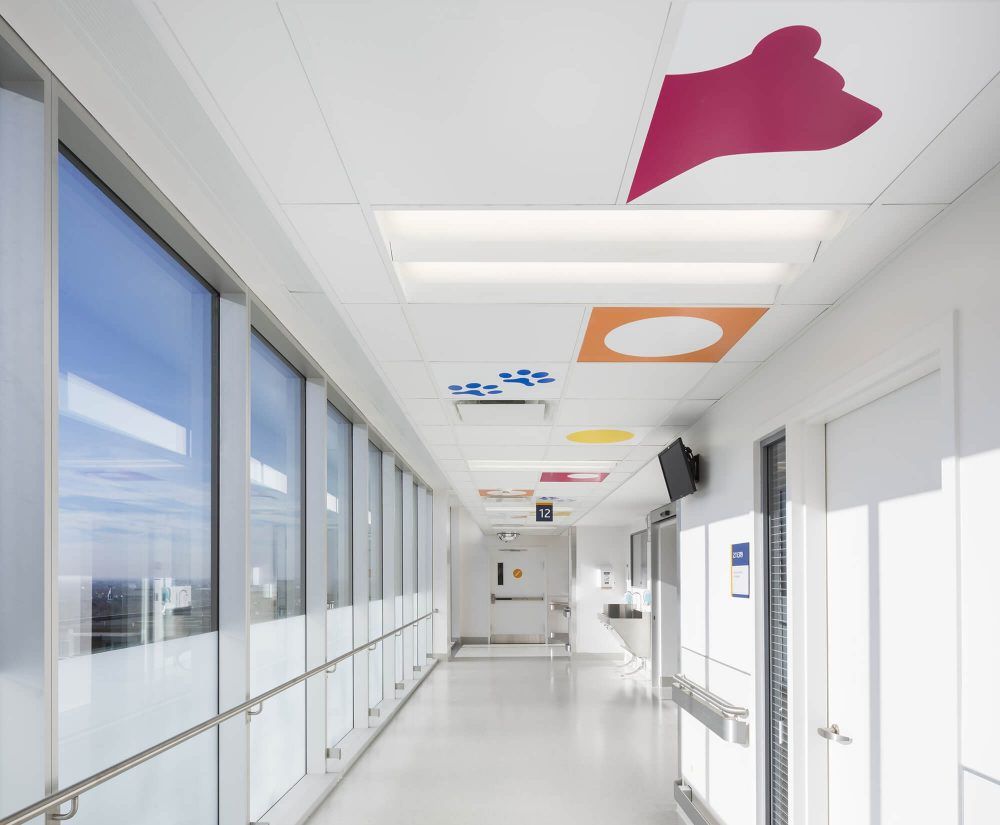
Vivid colours and fun symbols abound. Designed to brighten up the day-to-day routines of the children as much as possible, they also serve as functional markers that orient users toward the various departments of the hospital. Works of art and playful objects are harmoniously interspersed throughout the building to stimulate kids’ rich imagination. Outdoors, an esplanade, a footpath and playgrounds are accessible. These public spaces play a dominant role in the overall creative approach: they give the project a soul and help eliminate the barriers that so often separate hospitals from their surroundings.
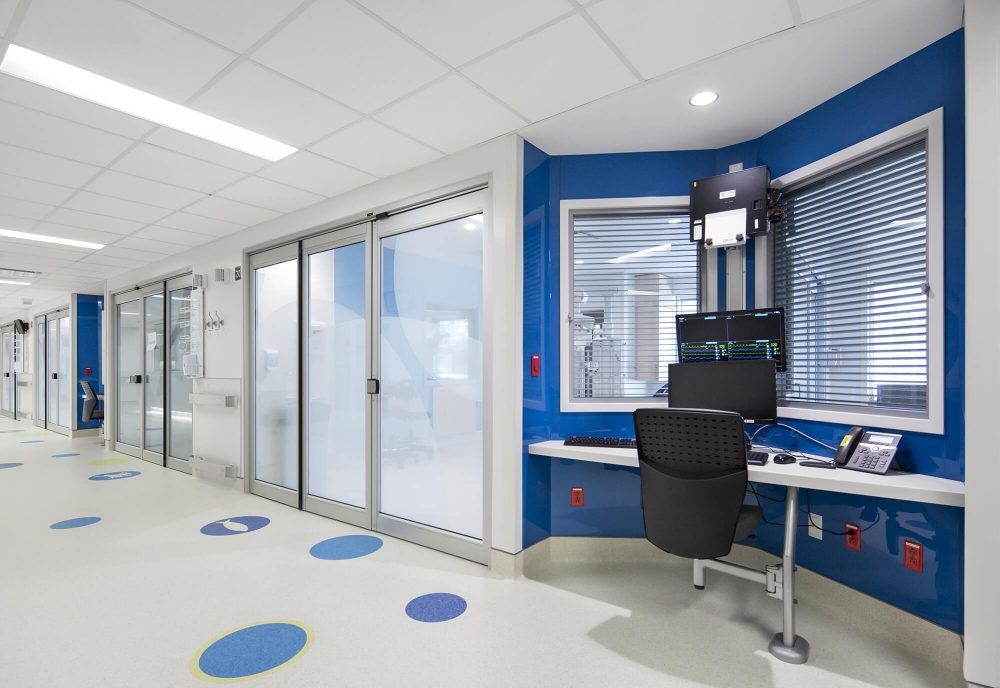
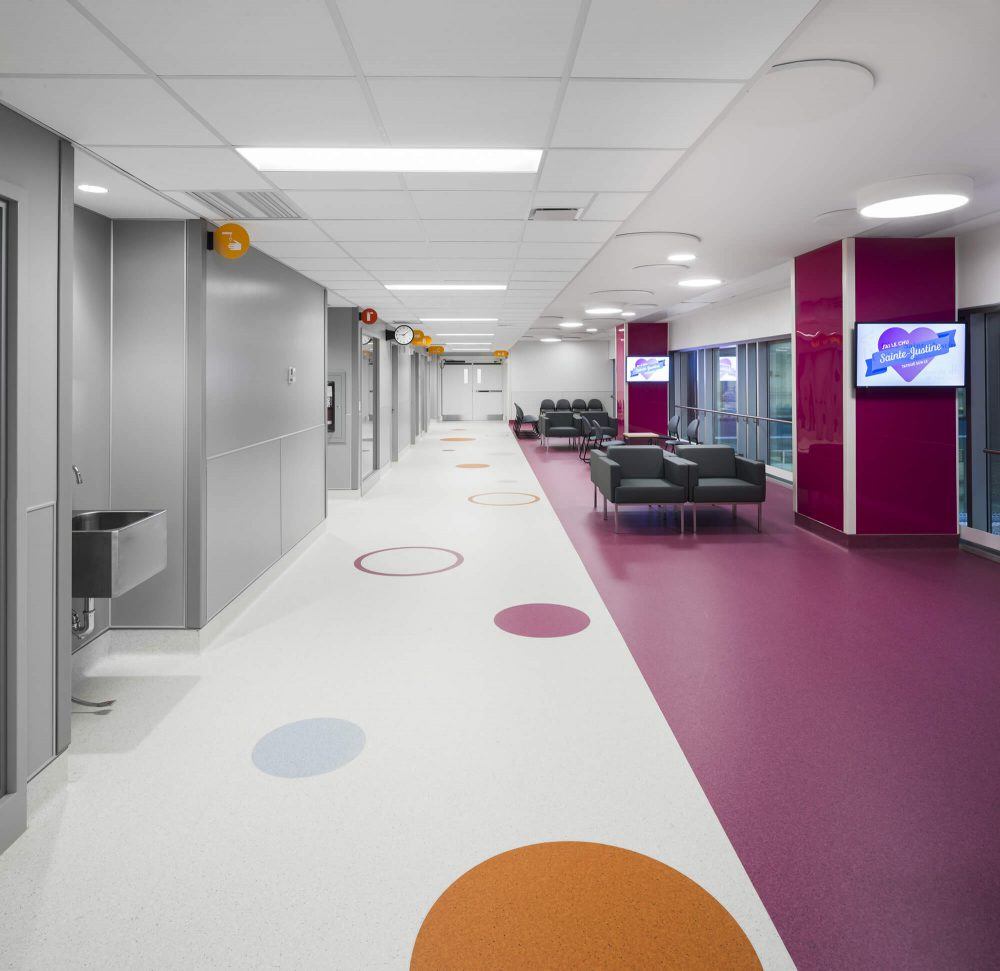
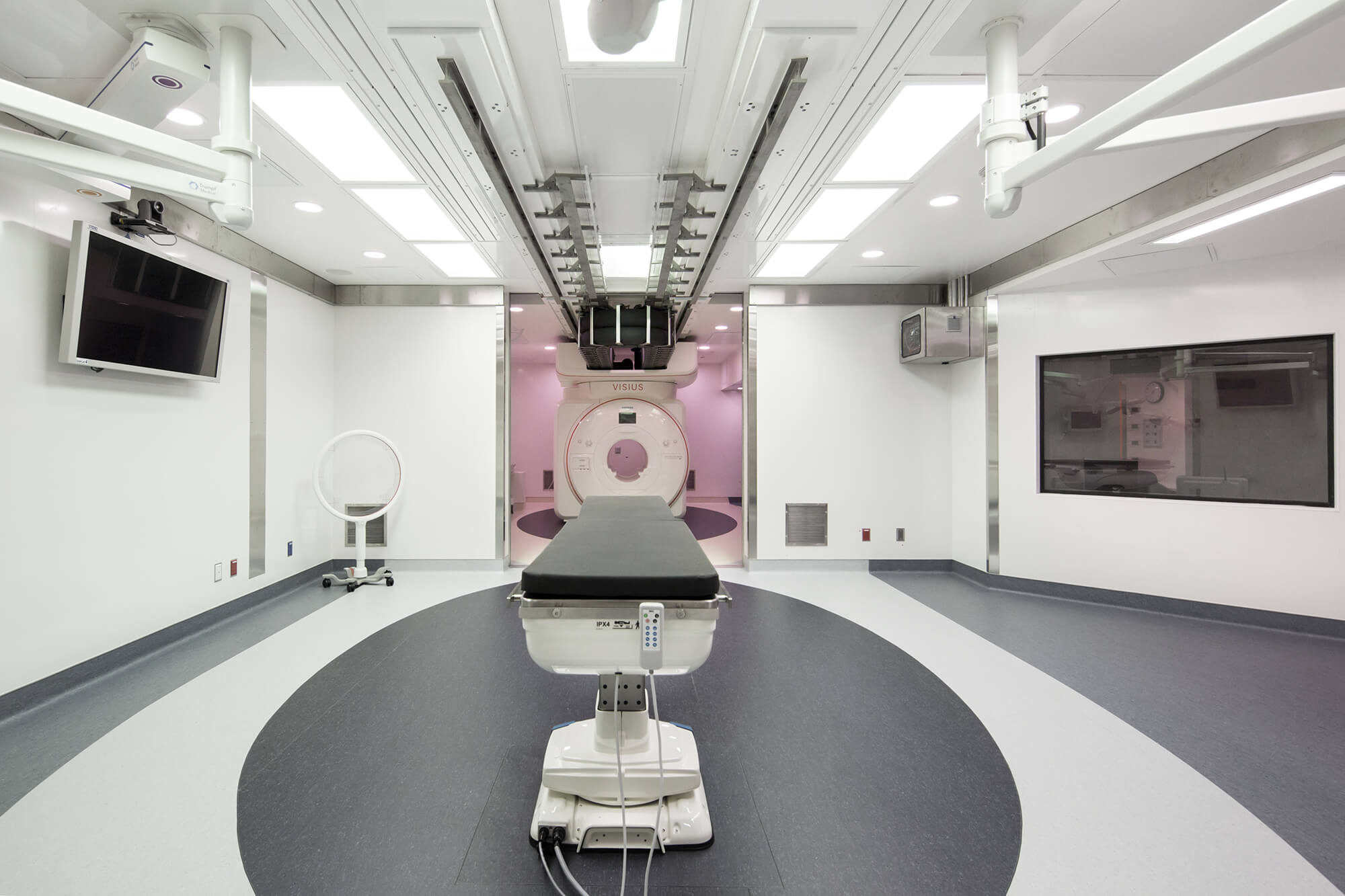
“When we see the twinkle in the eyes of the young patients as they explore the place where they will be living temporarily, we can claim with some pride that our efforts and this project have been successful.”
Martine Tremblay, architect and partner at Provencher_Roy
